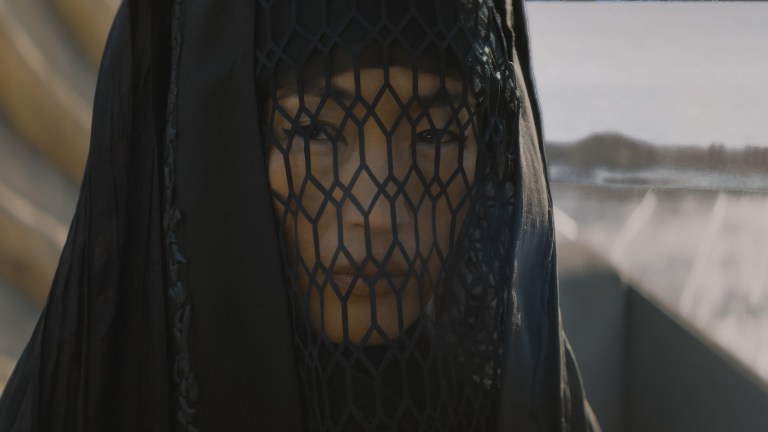Dune: Prophecy Timeline Embraces the Franchise’s Most Confusing Element
HBO series Dune: Prophecy is set to be more than a mere prequel, thanks to the strange concept of genetic memories.

Prequels are nothing new to the pop cultural landscape, but when it comes to Frank Herbert‘s Dune, the concept has a whole new meaning. Set more than 20,000 years in the future, Dune presents a world with echoes of ours, refracted through millennia of development. So with the announcement of the HBO prequel series Dune: Prophecy, fans wonder exactly where in the timeline the show takes place.
Showrunner Alison Schapker recently provided a bit of clarity about the show’s timeline by referring to novel that will guide the series. “Sisterhood of Dune was our seminal text that we were working with and drawing inspiration from,” Schapker told EW. “Our story is tethered to the events in that book, but we also are telling a story that takes place 30 years after the events of the book. So we have both the book to draw from, but we also have room to develop our characters and tell the story of Valya Harkonnen across multiple timelines.”
Okay, maybe that statement doesn’t clarify as much as we thought. After all, the 2012 novel Sisterhood of Dune, written by Brian Herbert and Kevin J. Anderson, takes place around 10,000 years before Dune. Which means that viewers shouldn’t expect too much consistency to either our present world nor the world they know from Denis Villeneuve‘s adaptations of Herbert’s first book.
In fact, the biggest surprise for movie viewers may be the protagonists of Dune: Prophecy, sisters Valya and Tula Harkonnen (Emily Watson and Olivia Williams). In the first two Dune movies, the Harkonnens are the clear villains. But as anyone who has read later Dune books knows, the franchise rarely deals in such simple morality.
Nor will the Harkonnens of Dune: Prophecy be the all-powerful family who rules the desert planet Arrakis. “When we meet Valya Harkonnen, she is a girl whose family has experienced a tremendous fall from power and has lost its noble status,” explained Schapker. “She dreams of restoring what she feels is rightfully theirs. How she goes from being someone obsessed with rebuilding her noble house to being someone who is dedicated to the Sisterhood above all is a big part of the story. It’s not a girlhood coming-of-age narrative so much as a woman’s rise to power from a Harkonnen perspective.”
The Sisterhood in question is the Bene Gesserit Sisterhood, the religious order whose centuries-long planning and manipulation leads to the arrival of Paul Atreides, the Kwisatz Haderach. Dune: Prophecy will show how the Bene Gesserit moves from a collection of sorceresses and starts claiming its place as a political power.
And yet, Schapker insists that Dune: Prophecy won’t move in a straightforward manner. In fact, the timelines will be mingled together. “A hallmark of Dune is that time is not just linear,” Schapker reminded readers, which gets at one of the most confusing aspects of the franchise.
By drinking sandworm bile called the Water of Life, those who survive have access to genetic memories, the ability to recall the lives of (usually women) in their past. Viewers of Villenueve’s Dune: Part Two saw a glimpse of genetic memories in the form of Paul’s sister Alia, who has the ability while still in the womb. Villeneuve illustrates genetic memory through Jessica’s speaking with her unborn child and in a conversation between Paul and the adult Alia, seen as a vision.
In Herbert’s later books, genetic memories get a bit more complex, as deceased characters such as Baron Harkonnen try to take control of their descendants, asserting themselves when that descendent accesses genetic memory.
For Schapker, genetic memory adds depth to the leads of Dune: Prophecy. “Some of them are actively communicating with their female ancestors at any given time. There are hidden histories and secrets to be discovered in the past that very much influenced the present, as our characters design the future. We wanted to create a series that allowed history to be alive, and that meant spending some of our time in the past.”
Thanks to genetic memory, Dune: Prophecy isn’t just a prequel. It’s a prequel, an origin story, and a continuation of the Villeneuve adaptations, which only underscores the franchise’s point about how humanity, even after many millennia, never fundamentally changes.
Dune: Prophecy arrives to HBO and Max in November 2024.
